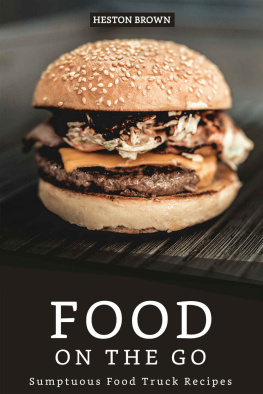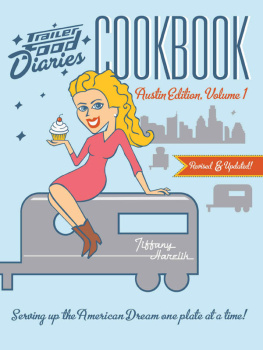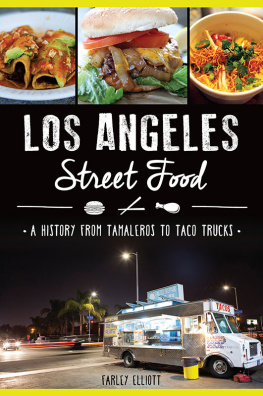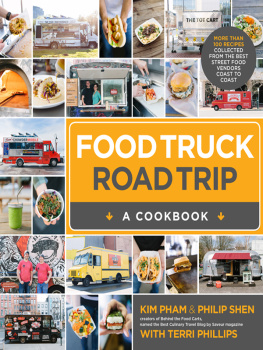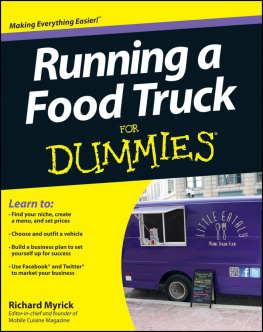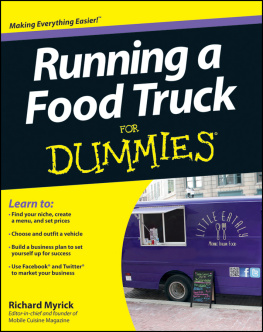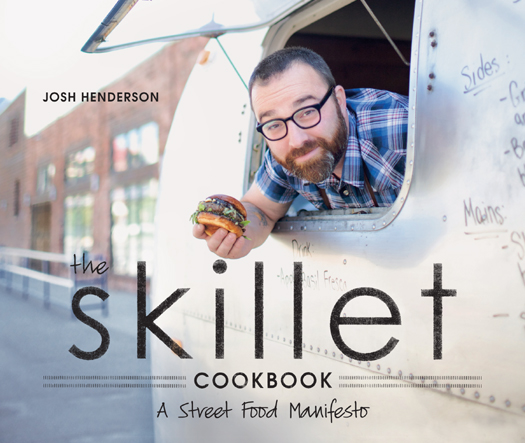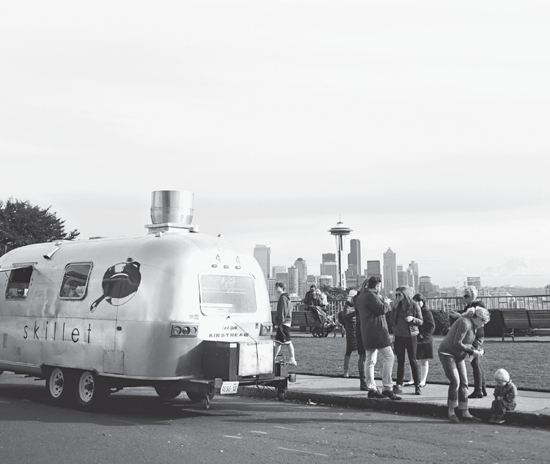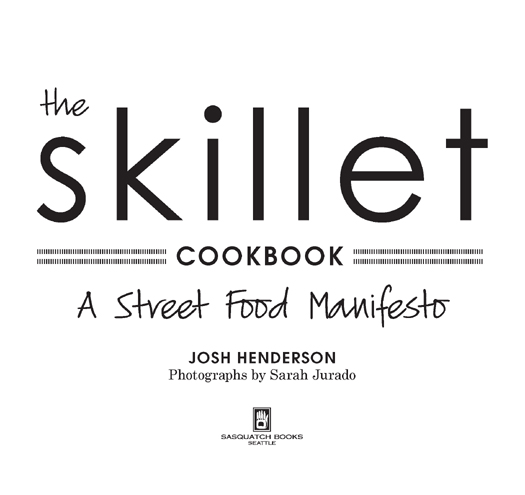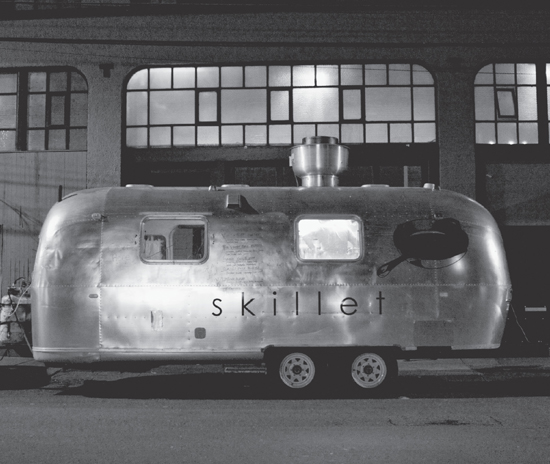Library of Congress Cataloging-in-Publication Data is available.
Huck, Kelli, and Wallace in her belly

The Skillet Story
This is the story of how I took my passion to the streets and anchored my roots in the seasons of the city.
In 2007 I bought an Airstream trailer for five grand and turned it into a street-food truck. I wanted to create modern American comfort food, sourced locally and made with skill. I served close to forty thousand people on the streets of Seattle that first year.
Street food is instant gratification parked on a city grid. Its noon; youre at your downtown office desk, starving. Maybe you forgot to eat breakfast. Maybe you cant do one more day of turkey and cheese sandwiches. My job is to satisfy a very simple need: hunger. But just as food nourishes, it also gathers. Street food is about community as well, about spreading a story through putting food in the hands of people. What I do is provide a convenience, a way of satisfying in real time.
I love the idea of underpromising and overdelivering. I am used to cooking on wheels, making whole feasts with only a Bunsen burner and a single frying pan. For about three years, I was a chef on commercial photo shoots. Id pack all of my own cooking equipment in bins, load up an RV, and cook in Moab, Bend, Miami. It was the quintessential nomadic bachelor lifestyle. Id wake up on a tarmac and serve a bunch of people eggs Benedict at 6 a.m. Good food doesnt require a giant kitchen and state-of-the-art equipment. It just requires the desire to make it happen anywhere and anytime.
Skillet really started back in 2006. After decades of cooking, I was working at a desk for a restaurant equipment manufacturer. Bored and browsing the Internet, longing to return to cooking, I became increasingly interested in street food. Over time, during my tenure at the Culinary Institute of America and cooking around the country, Id discovered that most industries have three tiers: the people who do the crappy version, the middle-of-the-road folks, and the top-tier folks who do it the best. Street food had the first two categories down patbut no one had yet attempted to put couture cuisine on wheels. I felt there was a niche there for us to fill. (Unfortunately, the city of Seattle didnt always agree, but more on that later.)
Street food shouldnt just be tacos. I originally thought about doing a grill cart, but the citys archaic laws at the time deemed them illegal. I realized I needed a full kitchen for the sort of meals I had in mind and started looking for different kinds of trailers. I could outfit one with all the required legal components, down to hot and cold running water, and drive to customers instead of having them come to me. I was very clear from the beginning about not wanting it to look like a taco truck; why re-create something thats already being done perfectly?
It took me and Danny, my business partner at the time, a while to figure out our model. Its one thing if Im selling the same taco or the same crepes every day. Theres a reason so many people do that. Its predictable, you know exactly what youre purchasing, and all that stuff. But what we wanted was to change every daylocation, menu, specials. It would be a moving target. I did want a simple core comfort food menu of staples and to elaborate from there. We started with a signature Kobe-style beef burger with bacon jam, arugula, and blue cheese on a locally made roll.
I stumbled upon a trailer up in Arlington, Washington, about an hour north of Seattle. The guy wanted $10,000 for a 1962 silver Airstream that was fairly empty, except that it did have a commercial hood and a three-compartment sink. It took me six months to talk him down, but I finally got him to agree to a $5,000 selling price, which was all that (maybe more than) I could afford. We outfitted it with a four-burner range, a fryer, a pan chiller, and a fridge, and we were halfway there. The plan was to drive the trailer to a different neighborhood each day, sometimes more than one, alerting people where to find us through our website and through tools like Google Maps and Twitter, which were just barely taking off back then.
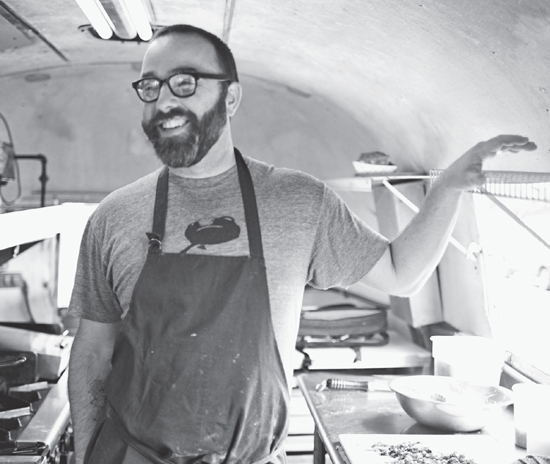
We originally wanted to call the business Le Pigeon and had a logo and everything mocked up to launch, but then a fantastic chef, Gabe Rucker, opened a restaurant by the same name down in Portland. So I chose the name of the only tool you ever really need to make a meal (save a few knives): the skillet. I loved the idea of cast iron and the beauty and ruggedness of the pan.
I was still concerned about how we were going to get our name out there. Its hard to remember now, when high-end street food is so big that its almost clichd, but people in Seattle hadnt seen anything like us before. No one was clamoring for something like it, as far as we knew. The closest thing to what we were planning was the handful of underground restaurants around town, hush-hush ventures where you would pay for dinner in a home or another unpermitted space. Like them, we originally tried to operate as a private club. We would sell lifetime memberships for a buck apiece and only allow members to buy our food. It was a way around not having a permit, and it let some of the underground restaurants squeak by semilegally. The health department initially told me that was an acceptable idea. By the time we had Skillet running, though, they kind of laughed it off and conveniently didnt remember saying that it was OK.
As the spring wore on, I was fairly desperate to get the trailer on the street. I had quit my job and thrown everything into preparations. Id been feeding local newspapers one-word e-mails about our plans from the beginning of January, and the buzz was happening. I had no prior experience with the media and was blown away by this. I felt like what we were planning was pretty cool, but I thought wed have to keep muddling around for a while until somebody noticed. I mean, my aunts been operating a little caf in the suburbs for twenty years, called Alexas, and she is constantly amazed at all the great press we get. Instead, the media all seemed to be interested, and a splashy article on us came out the day we opened.


